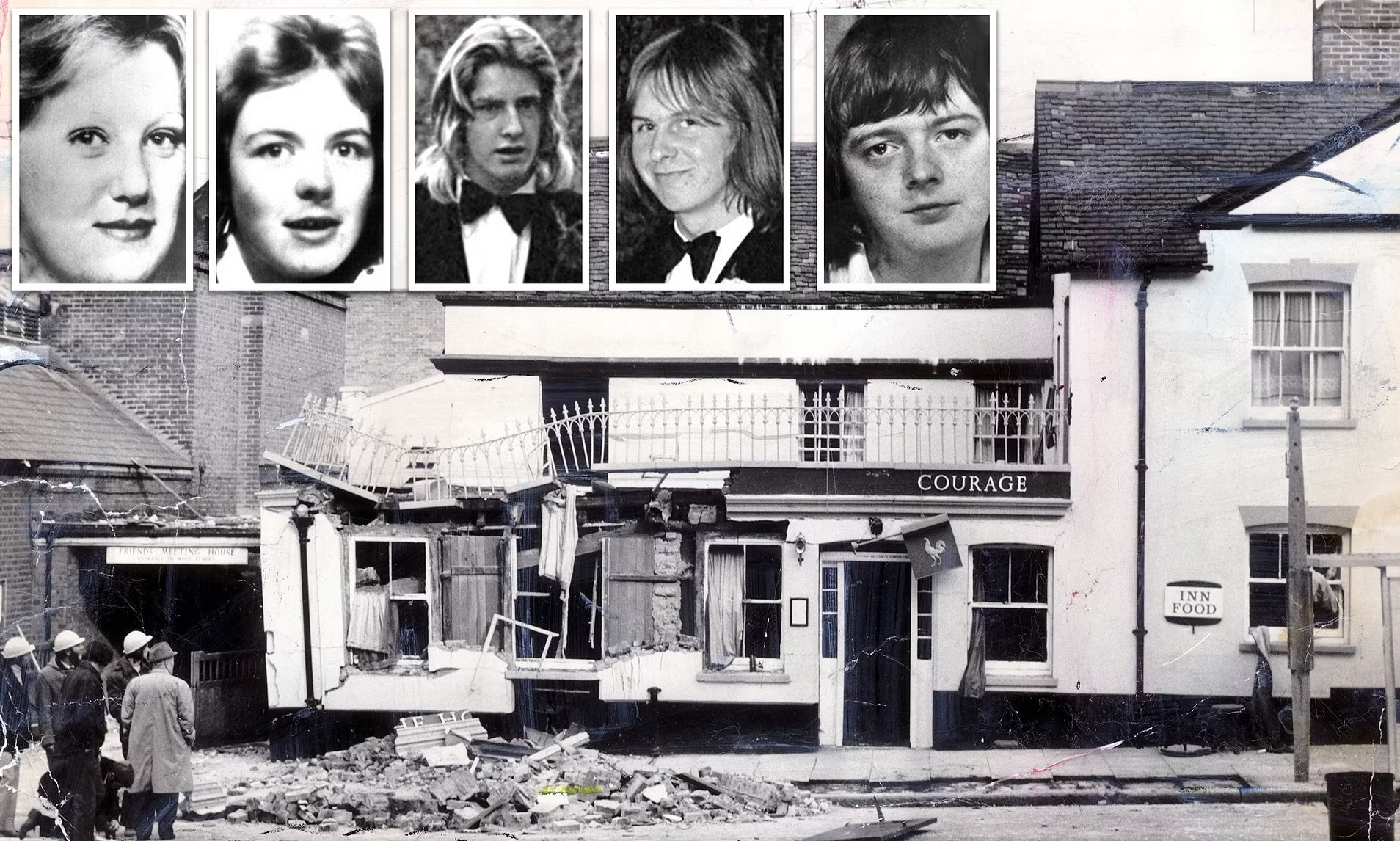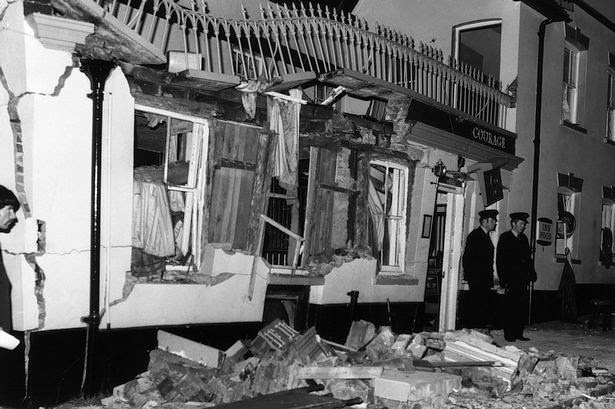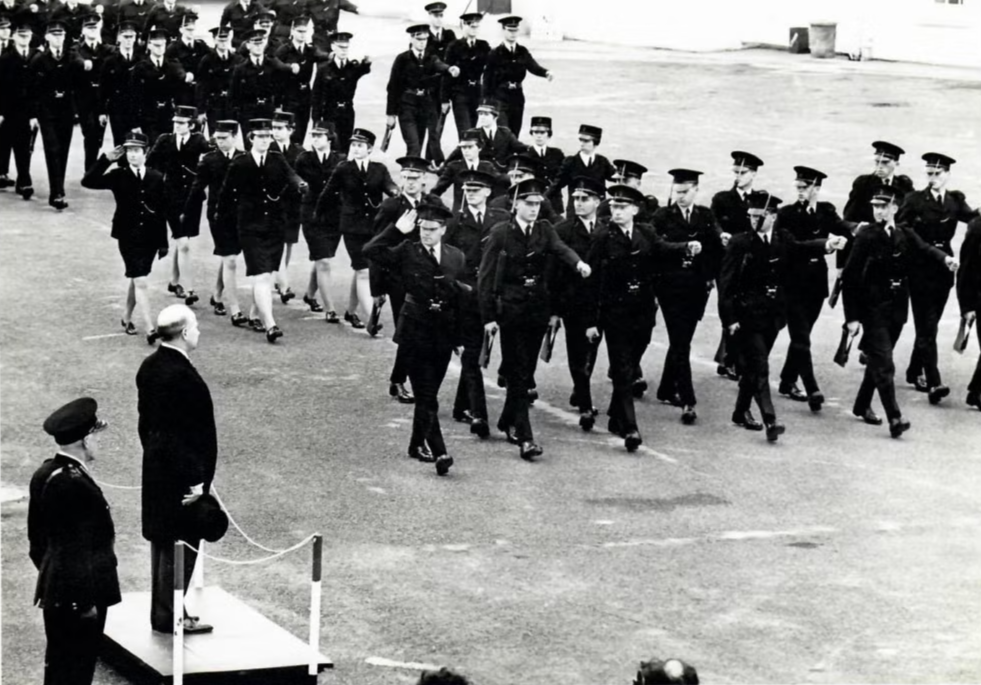Photo AI
Last Updated Sep 26, 2025
IRA Bombing Campaigns in Guildford and Birmingham Simplified Revision Notes for Leaving Cert History
Revision notes with simplified explanations to understand IRA Bombing Campaigns in Guildford and Birmingham quickly and effectively.
309+ students studying
IRA Bombing Campaigns in Guildford and Birmingham
The Guildford Bombings (1974)
- The Guildford Bombings were a series of bomb attacks carried out by the Provisional Irish Republican Army (IRA) on 5 October 1974.
- The attacks targeted two pubs in Guildford, Surrey: the Horse and Groom and the Seven Stars, both of which were popular with British soldiers stationed nearby.
- The bombs exploded on a busy Saturday evening, resulting in the deaths of five people—four soldiers and one civilian—and injuring over 65 others.
- The Guildford Bombings were part of a broader campaign by the IRA to bring the conflict in Northern Ireland to the British mainland, aiming to pressure the British government into withdrawing from Northern Ireland.
- The bombings were intended to cause maximum fear and disruption, demonstrating the IRA's ability to strike at the heart of Britain and highlighting the vulnerability of civilian and military targets alike.
- In the immediate aftermath of the bombings, the British government and police were under intense pressure to bring those responsible to justice.
- This led to the arrest and wrongful conviction of four people, who became known as the Guildford Four.
- These individuals—Gerry Conlon, Paul Hill, Patrick Armstrong, and Carole Richardson—were falsely accused of carrying out the bombings and spent 15 years in prison before their convictions were quashed in 1989 due to serious flaws in the investigation and evidence, including coerced confessions.
- The Guildford Bombings had significant implications for British society and law enforcement. The wrongful convictions of the Guildford Four exposed serious issues within the British justice system, including the use of coercive interrogation techniques and the pressure to achieve quick results in high-profile cases.
- The scandal surrounding the case eventually led to greater scrutiny of police practices and contributed to broader reforms in the British legal system.

The Birmingham Pub Bombings (1974)
-
The Birmingham Pub Bombings took place on 21 November 1974, just a few weeks after the Guildford attacks.
-
The IRA planted bombs in two pubs in Birmingham, the Mulberry Bush and the Tavern in the Town, both of which were popular with young people.

-
The bombs exploded within minutes of each other, killing 21 people and injuring over 180, making it one of the deadliest attacks in the history of the Troubles.
-
The Birmingham Bombings shocked the nation and intensified public and political pressure on the British government to take action against the IRA.
-
The bombings led to widespread fear and anger, with many calling for tougher measures to combat terrorism. In response, the British government introduced the Prevention of Terrorism Act (PTA), which granted police increased powers to detain and question suspects, among other measures aimed at curbing IRA activities.
-
Like the Guildford Bombings, the Birmingham attacks also led to a major miscarriage of justice. Six men—Hugh Callaghan, Patrick Hill, Gerard Hunter, Richard McIlkenny, William Power, and John Walker—were arrested and convicted of carrying out the bombings.
-
They became known as the Birmingham Six. Despite their consistent claims of innocence and evidence of police misconduct, the men were convicted and spent 16 years in prison before their convictions were overturned in 1991.
-
The Birmingham Six case further highlighted the flaws in the British justice system and the dangers of hasty, politically motivated prosecutions during a period of national crisis.
Significance of the Guildford and Birmingham Bombings
- The Guildford and Birmingham bombings were part of the IRA's broader strategy to extend their campaign of violence beyond Northern Ireland and into the British mainland.
- These attacks were intended to bring the realities of the conflict closer to the British public and government, increasing pressure for a political resolution to the Troubles.
- The bombings were a stark reminder of the IRA's ability to strike in unexpected places, causing widespread fear and leading to significant changes in British society and law.
- The wrongful convictions in both the Guildford and Birmingham cases had profound and lasting effects on the British legal system.
- The public outcry over the miscarriages of justice led to greater scrutiny of police practices, particularly the treatment of suspects during interrogation.
- These cases exposed the dangers of rushing to judgment in high-profile terrorism cases and highlighted the need for more rigorous standards of evidence and fair trial procedures.
- Politically, the bombings and the subsequent miscarriages of justice fueled tensions between the British government and the Irish nationalist community.
- Many in the nationalist community saw the wrongful convictions as further evidence of systemic bias and mistreatment by the British state, deepening their sense of alienation and resentment.
- The events also intensified the debate over the balance between civil liberties and national security, a debate that continues to resonate in the context of counter-terrorism efforts today.
- Overall, the Guildford and Birmingham bombings were significant not only for their immediate impact in terms of loss of life and destruction but also for their long-term consequences on British legal and political systems.
- These events remain a powerful reminder of the complexities and challenges of dealing with terrorism in a democratic society.
A Little Something Extra - The Shankill Butchers
- The Shankill Butchers were a notorious loyalist gang in Northern Ireland during the Troubles, infamous for their brutal and sadistic crimes.
- Operating primarily in the Shankill Road area of Belfast, the gang was led by Lenny Murphy, a ruthless and violent figure within the loyalist Ulster Volunteer Force (UVF).
- The Shankill Butchers were active between 1975 and 1982, and they were responsible for the deaths of at least 23 people, most of whom were Catholic civilians.
- What set the Shankill Butchers apart from other loyalist paramilitary groups was their gruesome method of killing.
- The gang would abduct innocent Catholics off the streets, usually late at night, and take them to a secluded location.
- There, they would torture their victims before brutally slashing their throats with butcher's knives or other sharp instruments. This method of killing was intended to terrorise the Catholic community and send a message of fear and intimidation.
- The Shankill Butchers' reign of terror came to an end in 1979 when Lenny Murphy was arrested and convicted on unrelated charges. Several members of the gang were apprehended by the Royal Ulster Constabulary (RUC).
- However, Murphy was released in 1982, and shortly after, he was assassinated by the IRA. The Shankill Butchers remain one of the most horrifying examples of the sectarian violence that plagued Northern Ireland during the Troubles.

500K+ Students Use These Powerful Tools to Master IRA Bombing Campaigns in Guildford and Birmingham For their Leaving Cert Exams.
Enhance your understanding with flashcards, quizzes, and exams—designed to help you grasp key concepts, reinforce learning, and master any topic with confidence!
488 flashcards
Flashcards on IRA Bombing Campaigns in Guildford and Birmingham
Revise key concepts with interactive flashcards.
Try History Flashcards56 quizzes
Quizzes on IRA Bombing Campaigns in Guildford and Birmingham
Test your knowledge with fun and engaging quizzes.
Try History Quizzes29 questions
Exam questions on IRA Bombing Campaigns in Guildford and Birmingham
Boost your confidence with real exam questions.
Try History Questions27 exams created
Exam Builder on IRA Bombing Campaigns in Guildford and Birmingham
Create custom exams across topics for better practice!
Try History exam builder117 papers
Past Papers on IRA Bombing Campaigns in Guildford and Birmingham
Practice past papers to reinforce exam experience.
Try History Past PapersOther Revision Notes related to IRA Bombing Campaigns in Guildford and Birmingham you should explore
Discover More Revision Notes Related to IRA Bombing Campaigns in Guildford and Birmingham to Deepen Your Understanding and Improve Your Mastery
96%
114 rated
Stalemate and a search for peace 1974-84
Direct Rule and the Ulster Convention
466+ studying
183KViews96%
114 rated
Stalemate and a search for peace 1974-84
Roy Mason - Peace in Northern Ireland?
304+ studying
192KViews96%
114 rated
Stalemate and a search for peace 1974-84
Political Developments in the Late 1970's
335+ studying
189KViews96%
114 rated
Stalemate and a search for peace 1974-84
The Warrenpoint Ambush - Lord Mountbatten is killed
267+ studying
193KViews